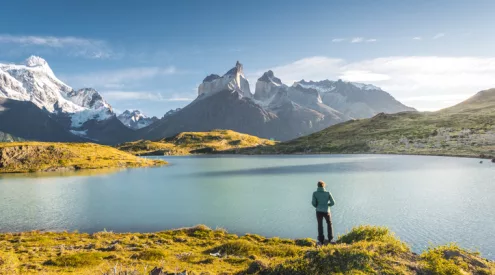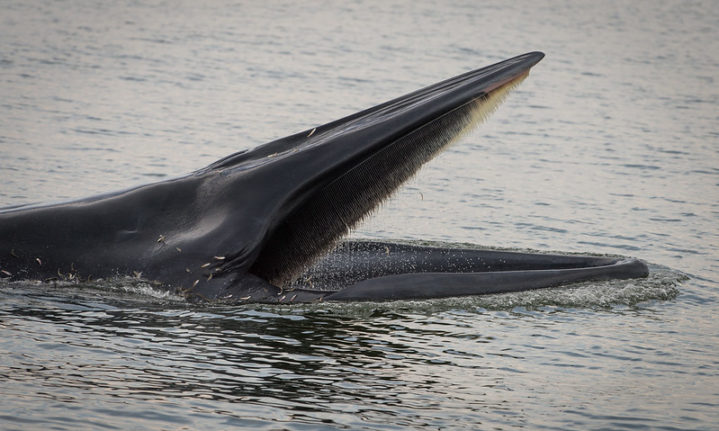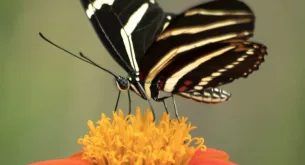World Whale Day is observed annually on the third Sunday in February, dedicated to the celebration of these beloved sea mammals. This day also advocates for the conservation of whales, by promoting awareness surrounding the challenges they face in oceans across the globe, and how to help them.
When did it start?

Humpback whale. Credit: Getaway Gallery
World Whale Day originated in Maui, Hawaii in 1980, to honour the humpback whales which swim off the island’s coast. It started out as an idea by Greg Kauffman – founder of the Pacific Whale Foundation – to raise awareness surrounding the threats humpback whales face, and the threat of extinction.
Since then, the day has branched out and become a global commemoration of all whales.
Why you should care
Even though some of South Africa’s whale population has recently made a comeback, the threats posed against whales have not been eradicated, and will continue to devastate the population until they are addressed. Have a look at some of the threats whales face.
Pollution
Plastic pollution and waste is rife in every corner of the ocean, threatening marine wildlife and ecosystems, and even the seafood we eat. To sketch a picture of what WWF dubs the ‘plastic problem,’ currently there are more than 11 million metric tons of plastic flowing into the ocean every year. Experts estimate that by 2050, plastic pollution could outweigh fish.
In addition, plastic can take hundreds or thousands of years to degrade. That’s centuries of damage to marine ecosystems and biodiversity, most of which is irreversible damage.
Entanglements
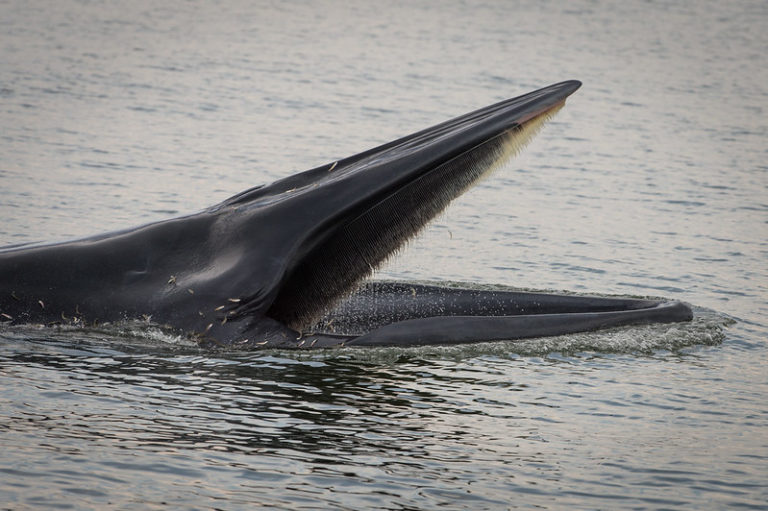
Bryde’s whale. Credit: Jason Thompson/Flickr Commons
Whale entanglements can fall under pollution. Trap fisheries are free-floating nets used almost universally for catching rock lobster and octopus. Nets are baited and typically designed in a way that does not allow the fish to escape. While trap fisheries are effective in their purpose, they pose a significant risk to marine life, as these free-floating ropes end up on the water surface and the ocean floor, where whales get entangled in them.
Some whales are able to shed the gear on their own. However, others are not, and can carry it for days, months, or years, causing injuries and infections, and impeding their ability to feed or swim. The extra weight of the gear or debris can cause whales to require more energy to swim and feed effectively, resulting in starvation.
In South Africa, Bryde’s whales are particularly vulnerable to entanglements, as they dive deep to catch their food. Southern right and humpback whales are also at risk, due to their inquisitive nature prompting them to investigate floating objects.
Commercial whaling
Whaling is the practice of hunting and killing whales to sell and trade their meat and its by-products. This practise has devastated whale populations around the globe. Scientists estimate that nearly three million whales were killed for commercial whaling in the 20th century.
According to the World Wildlife Fund (WWF), six out of the 13 great whale species are classified as vulnerable or endangered, even after decades of conservation efforts. Many countries including South Africa have banned commercial whaling to conserve whale populations. However, it is much harder to regulate in practicality.
Global warming and ozone depletion
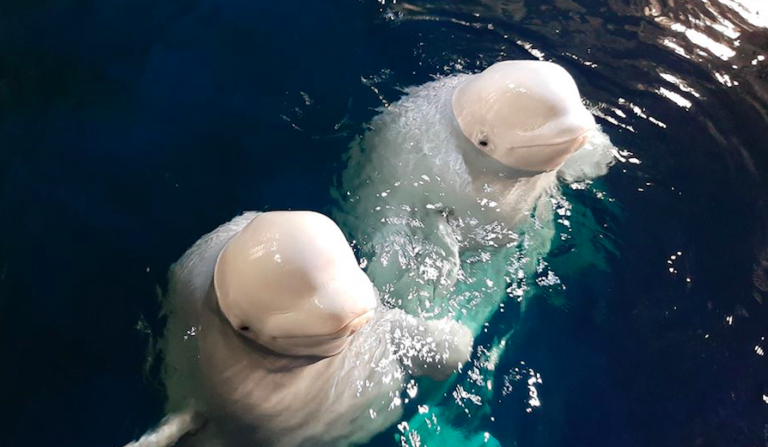
Beluga whales. Credit: Getaway Gallery
Global warming impacts all marine life. The rise in UV radiation disrupts food chains, and has particularly devastating effects on the population of krill; a primary food source for many marine species. This has a ripple effect, impacting more and more marine life.
According to WWF, climate change also impacts whale migration patterns. The bowhead, narwhal, and beluga whales are especially vulnerable, as they live in the Arctic waters all-year-round, where there is a hole in the ozone layer.
Toxic algal blooms
Harmful agal blooms – commonly known as red tide – occur when colonies of algae grow out of control and produce toxic or harmful effects on fish, shellfish, marine mammals, and birds. As the name suggests, these blooms turn the water red, and wreak havoc on marine ecosystems of both whales and their prey.
Strandings

Pilot whale. Credit: Christine Veeschkens/Flickr Commons
Beached – or stranded – whales are often found to be malnourished with their stomachs full of plastic. When this happens, whales become ill, confused and starving, resulting in them swimming toward the shore.
With pilot whales in particular, they swim toward gently sloping beaches which confuses their sonar and tricks them into thinking they are in open waters. The pod that the pilot whale travels with is then alerted by its distress signals, who in turn beach themselves trying to respond, resulting in mass beachings.
Moreover, returning a beached whale to the water is no easy task; it requires a team of experts and dedication, and even then it is not always successful.
Ship strikes
Ship strikes refers to the collision between vessels and marine animals, resulting in injuries or death. Most marine animals are underwater for the majority of the time, making them hard to spot by vessel operators. In turn, marine animals may also not be able to detect oncoming vessels, and therefore cannot move out of the way.
Whale watching
While the act of whale watching itself is not harmful, the industry certainly is. Since its inception, it’s become highly commercialised, with many tour companies dedicating vessels to whale watching alone.
Experts are concerned regarding the impact of the presence that too many vessels could have on the breeding, behaviour and migration of whales.
What can you do?
Spreading awareness and educating those around you about the challenges whales face is the best thing you can do, next to taking great steps toward reducing your plastic waste consumption.
Picture: Getaway Gallery/Anton Crone
ALSO READ
Darting as a tool to rescuing seals in distress: Here’s how it works




